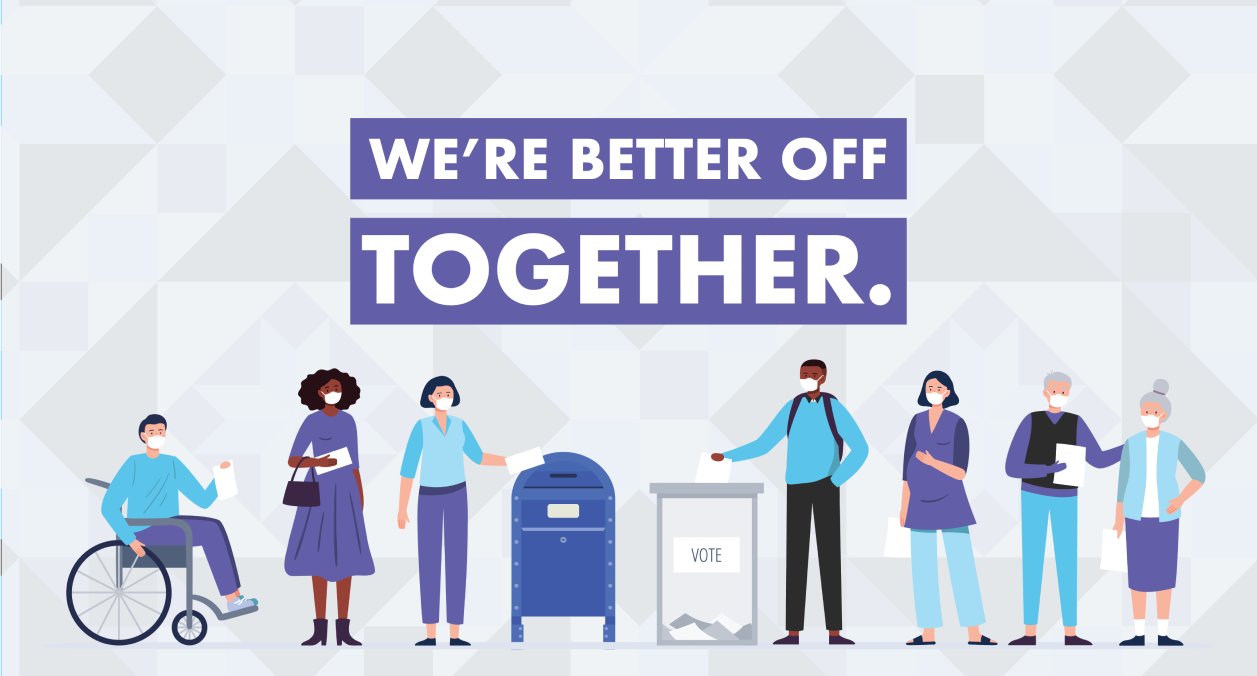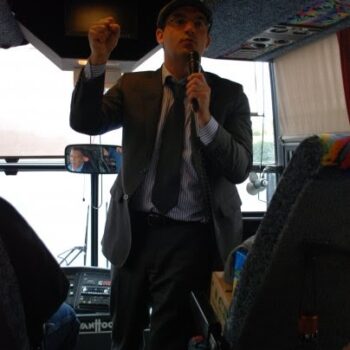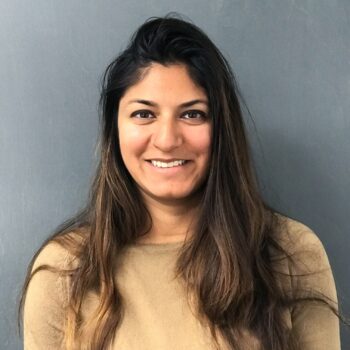To win government interventions of the scale and vision necessary to improve the health and wellbeing of rural Americans, we must provide an effective rejoinder to the right’s dog whistling — one that mobilizes a progressive, multiracial rural base and persuades a largely white rural middle to demand bold change. Race Class Narrative Action offers such a compelling alternate vision. The idea is simple: our campaigns have to talk about how race has been used to divide us in order to exacerbate economic inequality. This narrative approach disrupts the racial wedge politics that corporate conservatives have so effectively mobilized to woo white, working-class voters and erode their support for government.
Using the Race Class Narrative framework, organizations across the country have built powerful campaigns to bridge race, class, and gender differences in rural areas and small towns. In this election cycle, organizers are putting this framework into action on the ground through creative organizing tools like deep canvassing, where volunteers engage in lengthy conversations on the doors, using personal narratives to connect with voters from different backgrounds and begin to shift their beliefs.
In this conversation, Anika Fassia of the Race Class Narrative Action project and Adam Kruggel of People’s Action talk to four rural organizers — Alexa Howart and Abdulahi Farah from Faith in Minnesota, Mahisma Hallaji of Down Home North Carolina, and Maria Elena from Michigan United — about their campaigns to change the narrative about race and government in rural America and to scale up their organizing infrastructure to mobilize a base of multiracial voters. They talk about the work they’re doing to build relationships across lines of difference in small towns and rural communities, to listen to the deep pain these communities have endured, and to shift white rural voters’ understandings of the origins of that pain — and the political solutions to it.
Here are some excerpts from their conversation, which have been edited and condensed for readability.
Alexa Howart
I’m one of the lead organizers for Faith in Minnesota. I started organizing in rural communities and small towns across Minnesota about eight years ago. I come from rural communities, my family is scattered across rural Minnesota, Iowa, and North Dakota. And the town that my dad grew up in, Hope, North Dakota, actually almost doesn’t exist anymore. And I grew up taking trips out there.
But part of the reason I decided to organize in rural communities and small towns is because there was a story being told about the people I come from that was used to lower expectations and leave a set of people behind. So what I mean by that is, we would advocate at the capitol for expanding healthcare, for raising the minimum wage, for climate action, paid family leave, and racial equity. And we would hear consistently from rural legislators that people in their districts didn’t want that, didn’t want to set up those things. And we didn’t have the people power to prove them wrong but knew it was wrong in our guts.
I started to organize in small towns in Minnesota. These are communities of 20,000 to 30,000 people, and then some larger metropolitan areas where over the past thirty years, the demographics have shifted dramatically from being 99 percent white to now twenty years later being 60 percent white with large Somali immigrant communities and Latino immigrant communities. And at the same time, the economic structures and safety nets of these communities have been deteriorating.
When I started to go out and meet with people and have really deep conversations, there was a tremendous amount of pain. And over the past eight years that I’ve been organizing, I’ve seen that pain being weaponized and organized. In rural Minnesota and in small towns in Minnesota and across the country, there have been pockets of pretty robust white nationalist organizing. In Minnesota speakers go to churches and draw crowds of hundreds of people trying to teach people lies about Islam. And this has, for a long time, gained traction in rural Minnesota.
Abdulahi will talk a lot about this, but it has been incredibly painful for immigrant communities who have come to find rural Minnesota home. Because this pain has been weaponized, used to lower expectations and turn us against collective solutions, it has also hurt white people in these communities.
Abdulahi, his partners, and Faith in Minnesota have been building multiracial leadership teams all across the state and doing deep work around build[ing] these kinds of relationships where white folks in rural communities understand that the story about their immigrant neighbor being at fault or to blame for their economic pain is wrong. They have a right to their pain, but that pain is actually what connects them to their immigrant neighbor.
And that work is incredibly challenging. It requires a vigilant and constant dismantling of shame and going deep into people’s pain, which is hard for all of us. And for white communities, where I come from, many have a tremendous amount of shame around the pain that they feel economically because they believe that because they’re white, they should be doing okay.
We implemented lessons of Race-Class Narrative, which is that white people are being told stories about race all the time. When Democrats do not lean into conversations about race, do not take on race explicitly, or cast a vision about multiracial solidarity, we will continue to lose, and the consequences are devastating and violent.
We created a campaign called Greater Than Fear. We used this campaign as the closing argument of the 2018 election to give Minnesotans a set of tools to say, “We’re better than that. That is not who we are. And we are ready for the future where we are all in it together, where we see collective solutions as a benefit to all of us, every single one.”
Abdulahi Farah
I am the lead organizer with Faith in Minnesota, and specifically, I organize the Muslim base, which is called Muslim Coalition of Faith in Minnesota, and also ISAIAH. I organize in the metro area and also across the state in the rural areas, which many of our communities choose to make home.
Since the Trump Administration, we became one of the targets, specifically here in Minnesota, because he chose to actually come here several times to mention the community, the Somali community, and so forth. One of those has been when he came to the airport and talked about the community, and within less than a year, my mosque was actually bombed.
We definitely saw an uptick of hate directed at us. That’s how I got involved in the work, by knowing that we have to claim our voice, that we have to step in, otherwise these groups would just be more bold and instill more fear in our community.
We were organizing our community [and emphasizing[ that we are Greater Than Fear, that we will not step back. We organized across the mosques in Greater Minnesota and even in the Twin Cities a big Eid event in US Bank Stadium in downtown Minneapolis to show the community here in Minnesota, that we are Minnesotans like everyone else. And to also show solidarity, one of our taglines was, Eid is for Everyone. And so we invited everyone as well.
It was picked up by one of those right-wing radio or TV groups online. They were talking about how we were going to take over the downtown and slaughter cows and all kinds of things and basically created fear. A lot of our community members were again afraid to come together and actually celebrate together. But we had the narrative of Greater Than Fear. That actually helped us to push back against that hate and to hold an event that was well attended. Over 34,000 people came downtown to celebrate, claim their voice, and say, “We’re greater than fear.”
Many politicians showed up and that was an epic moment for our community to say: “Whether we are in Greater Minnesota or whether we’re downtown, we’re all connected.” We’re here to build our community, our power, and that no matter what fear tactic, whether it comes as a dog whistle, or if it comes from right-wing groups, it wasn’t going to stop us.
Mahisma Hallaji
I am an Iranian immigrant who grew up in Alamance County, North Carolina. In 2018, I came back to my roots here in the South to organize and challenge some of the discomforts that I had felt my whole life as an immigrant in my community. Our team here in NC has found that the discomfort that we all share is not imaginary and that we’re actually stronger when we talk about these things. We’ve found a lot of pain in our communities. It’s actually what connects us, and there’s a lot of hope in it. In terms of deep canvassing here in the South, a lot of us really do have complex feelings about the government. A lot of people that we’ve talked to on the right, what they always say to us is that they identify with President Trump because he speaks against the government and says that the government has not represented the people.
Maria Elena
I do deep canvassing and overdose crisis organizing with Michigan United. I’m originally from Puerto Rico. My dad was from Puerto Rico. My mom was a German immigrant. And living on the island, I realized that there was a lot of disparity with access to resources. My mother developed cancer when I was very young but because she was an immigrant and we lived in a very poor neighborhood, she unfortunately passed away. The resources existed, but we weren’t qualified to grab those resources.
And then the same thing happened to my father. He started developing really severe dementia and Alzheimer’s, and again, the resources existed, but we did not have access to it. And he also, unfortunately, passed away a couple of years ago. And that really started getting me on this track of thinking, if the resources exist, why can’t we use them? And why are there so many people in our communities, including myself, who have preexisting or other financial needs, and why can’t they get the resources if we know they are there? Why is there this false narrative of scarcity? And that’s one of the things that actually got me all the way here to Michigan.
I moved from Puerto Rico to Florida for high school. And then, right here to Michigan for college. I wanted to study public health to understand what resources people in rural communities had compared to people in cities and the differences between race and ethnicity and gender. I wanted to see what our communities were getting and why there was this false scarcity narrative. That is how I ended up doing rural deep canvassing in Michigan.
I wanted to see why there were people voting against themselves and their basic rights here in Michigan. Instead of having universal healthcare or voting for better social security, people were voting with this mindset of, “There isn’t enough to go around. I need to worry about myself and not about the people around me.” I wanted to see why this was happening.
A lot of us already knew this, but the deep canvassing that we did here in Michigan in rural areas, really showed us that there’s a lot of diversity when it comes to race, class, and where people come from. We saw that there are multiple issues affecting these communities. Overdoses are significantly impacting rural communities here in Michigan. Immigration is a really big issue. Access to economic resources is also really big here. And there’s actually a ton of immigrants here in rural Michigan.
Here in Michigan, we have a very diverse deep canvassing group where we have people from all backgrounds, all ages, all classes, so we can better empathize and understand where people are coming from. And when we go and knock on these doors, we want to really ask these voters about their experiences as a person. What have they gone through financially? Do they have family that immigrated here? What is their health situation? Do they have access to the resources they need?
Deep canvassing is also really important because, for example, as an immigrant from Puerto Rico, I’ll talk to them about my history with my medical health and their history with their possible medical health or whatever story they may have. And that way, we can dig deeper to understand what issues actually matter to them and what do they actually need. And no matter what side of the scale they’re on, whether they’re Republican, Democrat, more left-leaning or more right-leaning, everyone wants their voice heard. And everyone has been hurt by this system because the resources exist and they’re not being allocated properly. We need to come together as a community to get through this. And instead of just being individualistic and fighting for things that only one person needs, we want to fight for stuff that everyone in the community needs. [We want to fight so] that everyone’s voice is held, everyone’s voice is heard, and so we can hold these politicians or these big companies that are trying to hurt our communities accountable.
Read the entire issue on Organizing in Rural America.


